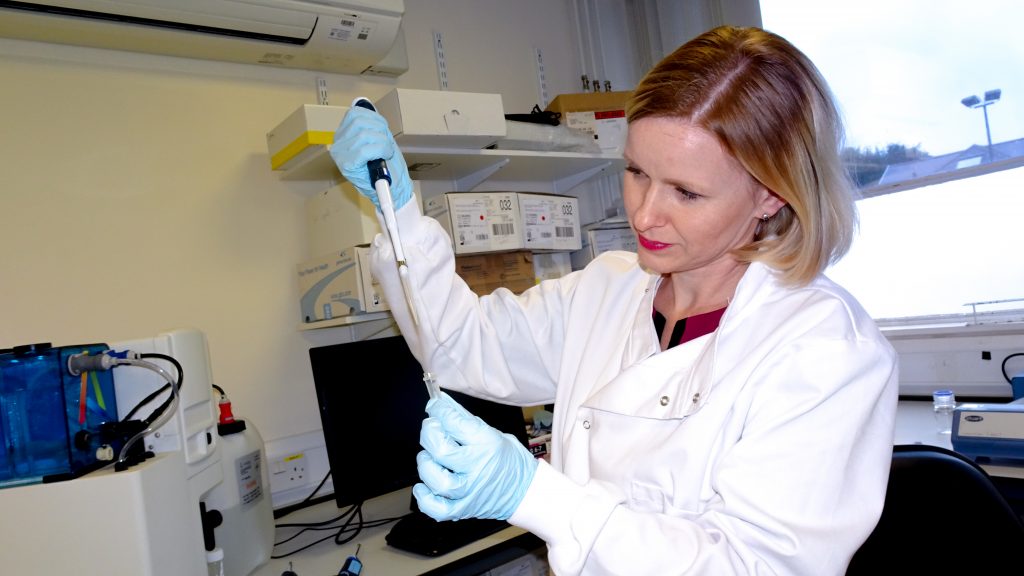Wales Cancer Biobank has recently been supporting an exciting new study, developed by researchers from the All Wales Medical Genomics Service (AWMGS) and leading oncologists in Wales.
Circulating tumour DNA (ctDNA) is found in our bloodstream and refers to DNA that comes from cancerous cells within tumours. As a tumour grows, cells die and DNA is released into the bloodstream. The quantity of ctDNA varies among individuals and depends on the type of tumour, its location, and the cancer stage.
ctDNA is already being used as a biomarker for screening cancer patients, for monitoring cancer recurrence, and for finding mutations that may be present within the tumour. Some patients in Wales are benefiting from this expertise, allowing their doctors to get a snapshot of the cancer without an invasive biopsy. The technology is currently limited however – only detecting a small number of mutations.
Rhian White and Sian Morgan from AWMGS, and Dr Magda Meissner, a Velindre Cancer Centre-based Medical Oncologist were awarded a unique opportunity to collaborate with the respected commercial company, Illumina. Together, they would work towards developing an ‘in-house’ ctDNA diagnostic test focusing on a 500 gene panel – the first in the UK!
Wales Cancer Biobank supplied blood samples to the research team so the innovative technology could be tested. This first phase of the study enabled the research team to expand the project and, with an extensive grant from Health and Care Research Wales, patients are now being recruited directly from lung clinics in Aneurin Bevan university health board – with imminent plans for the study to roll out across all Health Boards across Wales.
The Genomic results from the ctDNA blood test are made available to the weekly lung cancer multidisciplinary team meeting (MDT), where cancer diagnosis and treatment decisions are made. Patients will then receive personalised treatment after the MDT without having to wait for the genomic report from a tissue biopsy.
Dr Meissner and the team at AWMGS aim to shorten the time from referral to the start of treatment for lung cancer patients. Allowing doctors to select appropriate, personalised and timely treatments – without the need for patients to undergo risky and intrusive biopsies.


